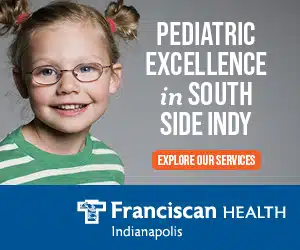Being a parent is the most beautiful and simultaneously terrifying adventure possible. SIDS, terrible twos, learning to drive, heading off to college – the endeavor of raising human beings can be overwhelming. Yet parents in all stages of the journey have one thing in common, the drive to protect their children from life’s preventable maladies. Cancer awareness and prevention, although scary to think about, is crucial. According to the National Breast Cancer Foundation, one in eight women will be diagnosed with breast cancer in her lifetime. Here we’ve asked several local experts to weigh in on the truth about breast cancer and your best course of action for prevention.
Heredity vs. habits
According to Dr. Meghana Raghavendra, a medical oncologist with Franciscan Physician Network Hematology and Oncology Specialists, “Only 5-10% of breast cancers are hereditary. The majority of the patients with breast cancer have a sporadic occurrence.” Joanna Springman, a physician assistant at Breast & Melanoma Specialists adds, “The rest of breast cancers are a combination of aging, environmental factors, lifestyle choice and comorbidities [in layman’s terms, the simultaneous presence of two chronic diseases or conditions in a patient].” Dr. Anna Maria Storniolo, an oncologist at IU Health, also says, “Approximately 75% of breast cancer patients have no family history. Family history isn’t definitive.”
So what does that mean? Pay attention to your family history, but be aware of the many other factors that contribute to breast cancer. While family history can be a predictor, some women may get lulled into a false sense of security of not getting the disease if they have no relatives who have it. Likewise, those with a family history can become unnecessarily panicked for their likelihood of getting breast cancer. Do pay attention to your habits. Dr. Raghavendra lists the following risk factors for developing breast cancer:
Age: The majority of breast cancer occurs in women 50 or older.
Weight: Higher BMI (body mass index) has been associated with increased risk of postmenopausal breast cancer.
Smoking and alcohol consumption: Any smoking and significant alcohol consumption are contributing factors. Doctors recommend no smoking and only moderate alcohol use.
Estrogen exposure: Women who give birth at an increased maternal age with their first child or who have early menstruation or late menopause are at an increased risk.
Start healthy habits early
“Living a healthy lifestyle is always best – proper nutrition, exercise, limiting alcohol intake, not smoking, etc.,” says Springman. “These lifestyle choices seem to be the most modifiable risk factors for individuals. Taking control of your health is key.” Dr. Raghavendra also recommends eating a diet rich in fruits, vegetables, fish and olive oil. She encourages monthly breast exams saying “Get to know what your normal breast feels like. This makes it easier to detect an abnormality, should it occur.”
Another impact factor: exercise. “We need to instill in our young girls that they need to be physically fit, and exercise needs to be a natural part of their day,” Storniolo insists. She says that the value of good habits formed early in life is crucial, and some trials have even found that exercise can be just as effective as drugs in reducing the risk of breast cancer in high risk individuals.
[gdlr_quote align=”right” ]Some trials have even found that exercise can be just as effective as drugs in reducing the risk of breast cancer in high risk individuals. [/gdlr_quote]
Being proactive about your health and your daughter’s health at a young age seems to be a universally encouraged way to combat the risk of breast cancer. Modeling healthy behavior and encouraging your daughter to follow in your footsteps could have a major positive health impact. And when you schedule your first mammogram, Raghavendra and Springman both suggest at age 40, discuss this procedure with your daughter. “Age appropriate screening mammography is the earliest way to detect a breast cancer,” says Raghavendra.
While any diagnosis of cancer is scary, breast cancer does not have to be a death sentence. “Breast cancer is a very treatable cancer,” Raghavendra says. A diagnosis of breast cancer today, as opposed to ten or twenty years ago, can mean “a greater duration of life thanks to improving imaging techniques, which detect smaller cancer, and improvement of therapy which allows women to continually have less side effects from treatment and the ability to enjoy life through and beyond treatment,” according to Springman.
A mother’s role
Dr. Raghavendra urges mothers to educate their children regarding signs and symptoms of breast cancer and also the proper techniques of self-breast exam. Springman adds, “The primary obligation [of a mother] is to bring awareness to her child’s body. Being aware of changes and having the confidence to seek help when a change is noticed is important. Boys should also be aware that they are susceptible to breast cancer and should know signs and symptoms of it.”
Dr. Storniolo understands that it can be frustrating to have so many things out of your control as a parent, but urges women to “optimize what is in your control.” Establish healthy eating and exercise habits early with children, so that they become second-nature. She is also a strong advocate for breastfeeding: “Using the breast for what it was meant to do is probably the best way to reduce the risk of breast cancer.”
Lastly, Dr. Storniolo encourages mothers to keep their anxiety about breast cancer and their daughters in check. Become educated, be a good role model for healthy behaviors and then show your daughter how to live your life not with fear, but awareness.






